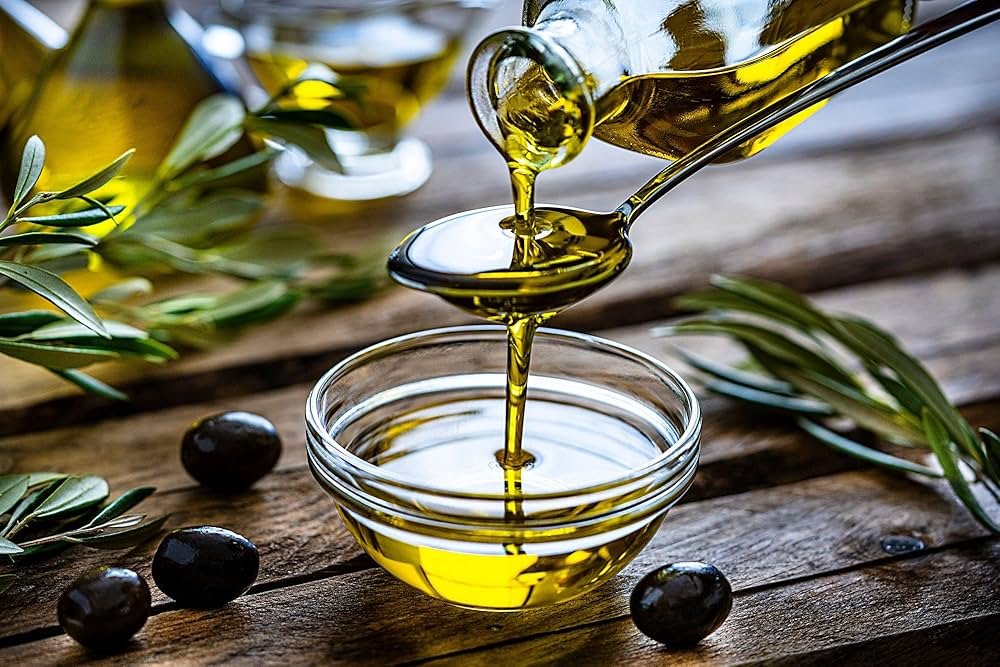Natural remedies never go out of style. While shelves overflow with shampoos and serums, more people are reaching back to traditional solutions for healthier locks. One of the most trusted age-old secrets is zaitoon oil for hair. Known globally as olive oil, zaitoon oil has nourished hair for centuries, from the Middle East to the Mediterranean. Rich in vitamins, antioxidants, and fatty acids, it’s a natural elixir that strengthens, smoothens, and revitalizes hair without harsh chemicals.
This guide explores everything about zaitoon oil from its history and benefits to scientific evidence, practical uses, and tips for choosing the right type.
What is Zaitoon Oil?
Zaitoon is the Arabic word for olive, and zaitoon oil refers to the oil extracted from pressed olives. Unlike many processed hair oils, authentic zaitoon oil is pure, nutrient-dense, and deeply moisturizing.
- Cold-Pressed Oil: Extracted mechanically without heat, preserving antioxidants and vitamin E.
- Refined Oil: Processed with heat and chemicals, often lighter but with fewer nutrients.
For hair care, extra virgin zaitoon oil stands above the rest. It’s loaded with:
- Vitamin E: Repairs damage and adds shine.
- Oleic Acid: Strengthens roots and locks in moisture.
- Antioxidants: Protect hair from pollution and free radicals.
Historically, civilizations like the Egyptians, Greeks, and Persians massaged zaitoon oil into their hair and scalp, considering it both a beauty treatment and a spiritual ritual.
Why Use Zaitoon Oil for Hair?
Strengthening Hair Follicles
Hair health begins at the root. The vitamin-rich profile of zaitoon oil penetrates deep into the scalp, nourishing follicles. Stronger follicles mean less hair shedding and more resilience against breakage. Ancient remedies often recommended a weekly scalp massage with olive oil to “wake up” weak roots—a practice modern dermatologists still support.
Promoting Hair Growth
Fatty acids like oleic acid and linoleic acid stimulate circulation when massaged into the scalp. Improved blood flow delivers oxygen and nutrients, boosting growth. Compared to coconut or argan oil, zaitoon oil offers a balance of lightweight absorption and deep conditioning, making it suitable for both thin and thick hair.
Reducing Hair Fall and Breakage
Dry, brittle hair snaps easily. Zaitoon oil seals the cuticle, reducing protein loss. In one study, olive oil was shown to decrease hair fiber damage caused by washing and styling. Regular use can lead to stronger strands that resist everyday stress.
Treating Dandruff and Scalp Issues
Nobody likes a flaky scalp. Thanks to its antimicrobial properties, zaitoon oil for hair calms irritation and restores moisture. Mixed with lemon juice or aloe vera, it can effectively reduce dandruff while soothing itchiness.
Adding Shine and Smoothness
Forget chemical conditioners. A light coat of zaitoon oil tames frizz, softens rough ends, and gives hair a silky sheen. Unlike silicone-based products, it doesn’t coat the hair artificially it nourishes from within.
How to Use Zaitoon Oil for Hair Effectively
Simple Massage Technique
The easiest method is a warm oil massage:
- Warm 2–3 tablespoons of extra virgin zaitoon oil.
- Massage gently into the scalp with fingertips.
- Spread evenly across the strands.
- Leave for 30 minutes to overnight.
- Wash with mild shampoo.
Best results come from weekly use, either before showers or as an overnight treatment.
DIY Hair Masks with Zaitoon Oil
Turn your kitchen into a beauty lab.
- For Nourishment: Zaitoon oil + honey + yogurt.
- For Dandruff Relief: Zaitoon oil + aloe vera gel.
- For Strength and Shine: Zaitoon oil + egg yolk.
These natural masks hydrate, repair, and protect hair without chemicals.
Blending Zaitoon Oil with Other Oils
Each oil brings unique benefits. Combine zaitoon oil with:
- Castor oil: Boosts thickness and growth.
- Coconut oil: Deep conditioning for dry hair.
- Almond oil: Enhances shine and smoothness.
Blends allow customization based on your hair’s specific needs.
Scientific Backing – Does Zaitoon Oil Really Work?
Skeptics often ask: Is it just tradition, or is there science behind it?
- Research published in the International Journal of Trichology highlighted olive oil’s ability to reduce oxidative stress on scalp tissues, a major factor in hair fall.
- Another study showed that olive oil reduced protein loss in damaged hair fibers, making strands stronger after repeated washes.
- Dermatologists emphasize its role as a natural emollient, which locks in moisture and prevents split ends.
So, while zaitoon oil isn’t a miracle cure for baldness, it supports scalp health, reduces breakage, and promotes natural growth.
Choosing the Right Zaitoon Oil for Hair
Extra Virgin vs Regular Olive Oil
| Type | Nutrient Content | Suitability for Hair |
| Extra Virgin Olive Oil | High (unrefined) | Best choice for hair |
| Virgin Olive Oil | Moderate | Good, but less potent |
| Refined Olive Oil | Low | Lighter, less effective |
Always opt for extra virgin for maximum benefits.
How to Check Purity
- Look for “cold-pressed” and “100% extra virgin” on labels.
- Avoid bottles with vague terms like “pure” or “light.”
- Prefer dark glass bottles, as light degrades nutrients.
Trusted Brands in the Market
Some reliable names include: Filippo Berio, Borges, Colavita, and organic local presses. Choosing reputable brands ensures authenticity and quality.
Side Effects and Precautions
Although safe for most people, zaitoon oil may have a few considerations:
- Allergies: Rare, but patch test before full use.
- Overuse: Can make hair greasy or weigh it down.
- Clogged Pores: Avoid leaving large amounts on scalp for days.
For best results, apply 1–2 times a week in moderation.
FAQs About Zaitoon Oil for Hair
Can zaitoon oil reverse baldness?
No, it can’t reverse genetic baldness but supports healthier growth.
How often should you apply it?
Once or twice a week is ideal.
Can I leave it overnight?
Yes, overnight use helps deeper penetration, but cover your pillow.
Does it suit all hair types?
Absolutely. It’s versatile enough for curly, straight, dry, or oily hair.
Can it replace conditioner?
Yes, a few drops after washing act as a natural leave-in conditioner.
Conclusion – Why Zaitoon Oil for Hair is Worth Trying
So, is zaitoon oil for hair really worth the hype? The answer is a resounding yes. Packed with vitamins, antioxidants, and fatty acids, it strengthens roots, reduces breakage, fights dandruff, and adds shine. Backed by both tradition and modern science, it offers an affordable, natural, and chemical-free alternative to commercial products.
If you’re seeking healthier, stronger, and shinier hair, adding zaitoon oil to your routine might be the best decision you’ll make for your hair this year.

